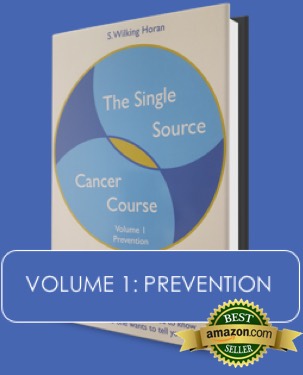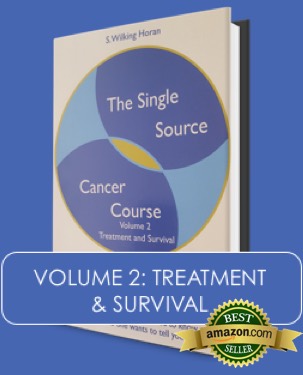 BACK IN THE NEWS – THE SILENT CANCER
BACK IN THE NEWS – THE SILENT CANCER
Welcome to another FACTUAL FRIDAY everyone. This week we’re discussing a cancer that’s back in the news and on the front page. With the recent death of music icon ARETHA FRANKLIN, pancreatic cancer is on everyone’s mind.
Now, this cancer is not as rare as you might think. Worldwide it is the 13th most common and in the United States it ranks as the 10th most common cancer among both women and men.
It’s also known as a “Silent” cancer in that it often remains undetected until the symptoms and the disease have become wide spread.
Pancreatic cancer is an equal opportunity disease affecting women and men, personal friends and family members as well as many celebrities, including Steve Jobs, Luciano Pavarotti, Jack Benny, Michael Landon, Patrick Swayze, Henry Mancini and of course, our beloved Queen of Soul.
Unfortunately, because of its “silent” nature, this cancer is especially difficult to fight and overcome. Successful treatment depends upon the type of pancreatic cancer with which one is diagnosed and, of course, early detection.
And, we just have to look at Ruth Bader Ginsburg to see that early detection can make all the difference. Diagnosed in 2009 during a routine annual exam, Ms. Ginsberg underwent surgery and treatment for pancreatic cancer and today continues to live an amazing life while serving as a Justice on the United States Supreme Court.
Clearly, it remains extremely important, therefore, to understand the RISK FACTORS for this cancer so we can effectively protect ourselves and take the proper precautions.
Accordingly, let’s begin with 5 MAJOR RISK FACTORS for PANCREATIC CANCER:
1) TOBACCO USE. All tobacco use, including cigarettes, pipes, cigars, snuff and chewing tobacco allow harmful carcinogens to enter the body through the mouth, nose and lungs. Inhaling second-hand smoke as well has been shown to be as harmful as personal tobacco use.
2) OBESITY. Obesity is related to a high fat diet. A diet high in fatty foods such as red meats and dairy products forces the endocrine gland of the pancreas to work harder in order to digest the increased amount of carbohydrates and fat. Over many years, the pancreas may simply become exhausted where it may become weakened and susceptible to disease, including pancreatic cancer.
3) ENVIRONMENTAL CONDITIONS. Our workplace environment appears to play an important role in the development of this cancer. Leather tanners, chemists, auto mechanics, oil and gas field laborers and manufacturers of photographic film are all exposed to specific harmful chemicals that increase one’s risk for developing pancreatic cancer.
4) PERSONAL MEDICAL HISTORY. Individuals with a history of diabetes mellitus appear to have a greater risk for developing pancreatic cancer. This condition presents a complex  disorder of carbohydrate, fat and protein metabolism that directly affects the pancreas. Research also indicates that those with a history of chronic pancreatitis also share an increased risk for developing this disease.
disorder of carbohydrate, fat and protein metabolism that directly affects the pancreas. Research also indicates that those with a history of chronic pancreatitis also share an increased risk for developing this disease.
5) FAMILY MEDICAL HISTORY. Several hereditary conditions, including hereditary nonpolyposis colon cancer (HNPCC), Lynch syndrome, von Hippel-Lindau syndrome, Peutz-Jeghers syndrome, multiple endocrine neoplasia type 1 syndrome (MEN1), hereditary breast and ovarian cancer syndrome, cirrhosis of the liver and familial atypical multiple mole melanoma syndrome (FAMMM) contribute to our personal risk for developing pancreatic cancer.
With this in mind, it’s important also to be aware of 5 IMPORTANT SYMPTOMS that may indicate the presence of pancreatic cancer:
1) Loss of appetite.
2) Non-specific weight loss.
3) Jaundice or yellowing of the skin.
4) Dark urine.
5) Persistent pain in the back or abdomen.
Understanding the risks and remaining aware of the symptoms of pancreatic cancer can go a long way in protecting us from this disease.
In addition, regular physical exams and blood chemistry studies are a must, especially is your risk for this disease is greater than average. Tumor marker tests as well can be conducted at the same time you have your blood chemistry analyzed.
And, please don’t forget the wonderful diagnostic tools available to us today, including:
- Magnetic Resonance Imaging (MRI).
- CT Scan (CAT Scan).
- Positron Emission Tomography Scan (PET Scan).
- Ultrasound.
- Endoscopic Retrograde Cholangiopancreatography (ERCP).
- Percutaneous Transhepatic Cholangiography (PTC).
- Biopsy.
- Laparoscopy.
All of these additional procedures can help detect the presence of a malignancy, as well as rule out the existence of one. They can allow you to begin immediate treatment for a problem, or give you peace of mind that your good health is intact.
 So, do your homework. Take a little time to research your family’s medical history — combine that with your personal history — and take the steps necessary to eliminate or modify those risks that are within your control to change. Because, small steps can lead to big changes!
So, do your homework. Take a little time to research your family’s medical history — combine that with your personal history — and take the steps necessary to eliminate or modify those risks that are within your control to change. Because, small steps can lead to big changes!
Once again, thanks for joining me everyone. Until next time, stay in GOOD HEALTH and . . .
TAKE THE COURSE AND TAKE CHARGE!



Leave a Comment